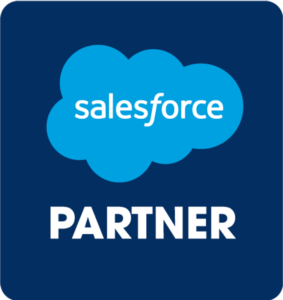Picture this: you’re a mid-sized business with over 20 sales reps. You’re hungry and dynamic, pushing hard for growth. Your commission plan is integral to this. It’s one of the levers you pull to drive behaviours and deliver results.
But, with this pace and growth come pains. That system you built in a spreadsheet has become unwieldy and unreliable. Maybe you’ve bought a system, but it’s not working as you envisaged. Data criss-crosses back and forth between systems. It’s becoming harder and harder to trust what’s on your screen. The errors that crop up month-on-month cause friction that wastes time, creates mistrust, and shifts the focus from more important things. Your comp admin is under so much pressure every month to fix stuff and hit the payroll deadline, they’re burning the midnight oil and suffering.
So, you shout ‘Enough!’ and decide it’s time to introduce a sales comp tool to streamline everything and regain control. You do some homework and come across some players in this segment. You learn about Spiff, Everstage, CaptivateIQ, QuotaPath and ZINKT (naturally 😉). It’s time to ask some questions.
But what questions should you ask?
Allow us to help! We talk to people like you daily, and they ask great questions! Here are some of our favorites.
Strategic & business-focused questions
1.How does this solution support my company’s current and future compensation strategy?
A commission system should work for your business today and tomorrow. If you’re scaling fast, you need a solution that evolves with you. Some platforms struggle with flexibility and make evolving your comp plans painful. Others are too complex for anyone other than large enterprises with a dedicated headcount.
2. How will this software improve sales team motivation, engagement and focus?
Sales reps perform better when they trust their commission calculations. Real-time dashboards, clear earnings breakdowns, and goal tracking contribute to transparency. Prioritize a system that makes commissions easy to understand and optimize.
3. How can this software support revenue operations and forecasting?
Accurate commission data should flow seamlessly into revenue operations and forecasting. Ask how the system ensures data integrity, manages updates after initial input, and allows for quick interrogation of dashboards. The fewer manual adjustments needed, the better.
Functionality & performance questions
4. Can it handle our specific commission structures, bonuses, and SPIFs?
Every business has unique compensation plans. Check if the software can handle your commission rules without requiring skilled admins, manual workarounds, or costly customisations.
5. Does it offer real-time commission tracking and visibility for reps and managers?
Visibility is key. Sales teams want to see their earnings in real-time, not wait for an overnight sync or even worse, until payday. A system that updates commission data live can reduce disputes and boost motivation.
6. How does it handle errors, disputes, and adjustments?
Mistakes happen. What matters is how easily they can be found and fixed. Look for a system that allows quick corrections without expert intervention or lengthy approvals, ideally in the CRM system they currently work in, not a new tool they are not familiar with. Ask how changes are reflected across the whole ecosystem, too.
7. How does the system ensure commission calculations remain accurate when source data changes?
Data changes can wreak havoc on incentive accuracy. A strong commission system should track, control, and flag updates that impact payouts. Look for features like commissionable event tracking, which takes a snapshot of key incentive data at the point of a qualifying action (e.g., a closed deal or demo). The best systems provide audit trails, automated alerts, and side-by-side data comparisons, so you always know when, why, and who made changes – ensuring every commission is paid correctly every time.
Technical & integration questions
8. Is this a Salesforce-native solution or one that requires third-party integrations?
If your business relies on Salesforce, a native solution ensures a smoother experience with zero integration challenges. Off-platform solutions can work but may require extra maintenance, add complexity, and need data integrations.
9. How do you reconcile commission data to ensure it is 100% in line with your sales data?
Some customers use off-platform solutions that pull data from their CRM, like Salesforce, but don’t sync results back. This breaks the closed-loop process, requiring manual audits to ensure sales data aligns with commission payouts. Discrepancies often arise when the commission system updates independently, leading to confusion over which system holds the true record of sales performance.
10. How well does it integrate with my existing CRM, ERP, and payroll systems?
Disconnected systems create data silos and inefficiencies. A strong commission platform should integrate seamlessly with sales, finance, and HR tools to ensure smooth operations.
11. What’s the implementation timeline, and what resources are needed?
Some platforms take months to implement and require extensive IT support and training. Others, like ZINKT, deploy quickly with minimal disruption. Adoption will be slower if users need to learn an entirely new system with an unfamiliar UX, especially if it sits outside their daily workflows. Ask about onboarding timelines and potential roadblocks to ensure smooth integration.
12. How is data managed? What protocols are in place to ensure compliance and security?
Data security is critical. Ask about audit logs, and compliance with industry standards like GDPR and SOC 2. Systems that do not require data to be imported or exported have significant benefits.
13. How scalable is this platform? Will it still work if my sales team doubles?
A commission system should grow with your business. If it struggles with increased users or complex plan changes, you could need another upgrade sooner than expected.
User experience & adoption questions
14. How intuitive is the user interface, and what training is required?
A system should be easy to use, especially for sales reps and admins. Some platforms require weeks of training, while others are intuitive from day one. If you’re a Salesforce user, a native solution will feel more familiar.
15. How will this solution help drive Salesforce adoption among my sales team?
When reps can see their commissions live within Salesforce, they’re more likely to log data conscientiously and accurately. A well-integrated tool reinforces good CRM habits and reduces manual data entry errors.
16. What kind of customer support and onboarding does the vendor provide?
Great software comes with great support. Look for vendors offering dedicated onboarding specialists, live chat, and ongoing account management rather than ticket-based support.
Cost & ROI questions
17. How do customers typically implement new plan changes? Do they self-serve or use a third party?
Some systems require external consultants for plan updates, adding cost. A flexible, easy-to-administer tool saves time and money.
18. How does the pricing model work, and are there hidden fees?
Is pricing based on users, transactions, or tiers? Check for additional costs related to integrations, premium support, or required add-ons. Several platforms require deployment support from third-party consultants.
19. How will this software save time and reduce errors?
A good system should free up admin time and reduce payout disputes. Look for vendors who can quantify efficiency gains—for example, ZINKT customers report a 50% reduction in manual adjustments within the first three months.
20. How does the cost of this software compare to other solutions?
The most expensive option isn’t always the best. Look for solutions that provide core functionality without unnecessary complexity, ensuring you get the best return on investment.
Choosing the right sales commission software for your business is an important decision and it pays to be diligent in your review process and look beyond the enterprise-level solutions. If you’re a mid-sized or fast-growing business with more than 20 commissioned sales reps and use Salesforce, talk to ZINKT. We can save you time and money, accelerate your adoption journey and drive results within weeks, not months.



